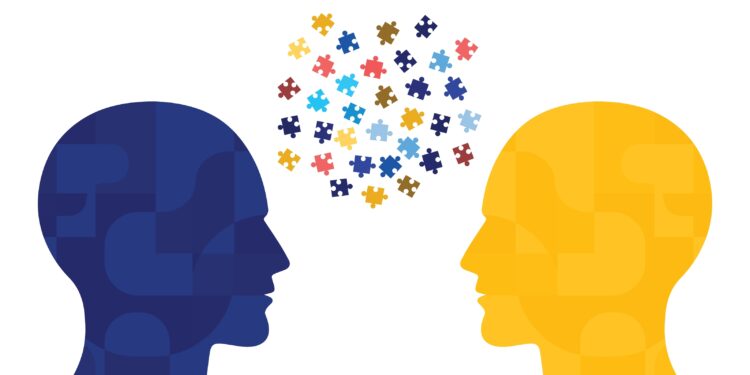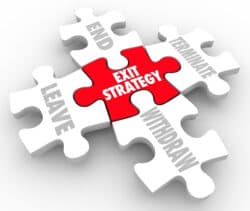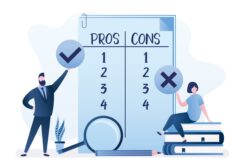Divorce is one of life’s most profound, transformative experiences. It can ruin you or set you free. How you do it, matters.
As a divorce lawyer and author of “Untangling Your Marriage: A Guide to Collaborative Divorce.” I work everyday with people who appear to be in a high state of anxiety. I’m constantly on the lookout for ways to ease the suffering. We know through both science and experience that what we do, and how we relate to each other has a profound impact on our lives, families, communities, and the entire planet. We are living in volatile, uncertain, and complex times. This requires a paradigm shift in our thinking. The old way of doing things is not working. There are new ways to divorce.
Choosing the right divorce process can foster healing
Divorce presents an existential challenge to our identities, not to mention everything else we thought we knew about ourselves, our spouses, and our future. It is normal to want to find some meaning to this change in one’s life trajectory. Synonyms for divorce include removed, split, detached, disconnected, distanced, broken up – all terms that are likely to describe how most people feel when they are contemplating divorce, whether you asked for it or not.
It’s common to feel as if your life is falling apart and you simply don’t have the energy to create a new life vision, much less a new divorce model. It may be easier to just feel mad, point the blame at your spouse for ruining your life, and turn it all over to a divorce lawyer, regardless of whatever adversity may result.
While your feelings may be overwhelming at times, you still have rational choices to make about your future financial security and your relationships with the people that you love.
Divorce doesn’t have to be a financial or emotional disaster. Choosing the correct process will have an impact on whether you emerge from your divorce wholehearted and healthy, or bitter and resentful.
Your divorce doesn’t have to be ugly
Before you do anything else (including telling your spouse that you want to divorce), consider the fact that if you call a divorce lawyer trained in the dark art of adversarial warfare, the risk is very real that things will go from bad to worse in a hurry. It also will cost a small fortune in attorney’s fees, and the interests of your children and other important family relationships will likely get lost amid the fray.
Ask yourself: Do I want an amicable divorce? Do I think my spouse would want an amicable divorce? Am I willing to ask for a different type of divorce experience? Is having a future, functional relationship with my spouse important?
You now have choices. This doesn’t have to be your parent’s ugly, bitter divorce.
Four ways to get a divorce
When it’s time to put things in motion, here are your basic options:
1. Do it Yourself (aka Kitchen Table Divorce): This is a great option for those with very little to argue about. In the DIY model, you’ll fill out the court forms in your jurisdiction and send in the requisite filing fees to the court and – voila! You just divorced yourselves. Not many people can do this effectively, but if you can, then more power to you. The best candidates have:
- A similar outlook
- No children, or no disagreements about them
- A prenuptial agreement, or not too many assets or income to divide
- A short marriage, where alimony isn’t an issue, or a longer one where the value of non-monetary contributions to the marriage are honored and paid for by agreement, or in accordance with a guideline (this might require a consult with an attorney)
- Time to educate themselves on the legal aspects of divorce
- Easy access to the state’s judicial website to download forms
- Confidence that they have equal bargaining power to negotiate
- Little to no interest or trust in lawyers
2. Mediation: This is an out-of-court dispute resolution model where you find a neutral conflict management professional (a mediator) to facilitate a difficult conversation. Mediation without lawyers can be an economical and empowering process. Done correctly, it’s an invitation to sit down with your spouse in a safe and confidential setting to have one of the most difficult conversations of your adult life. Note: Lawyers can be helpful to prepare for a mediation, as well as to review agreements after the fact before you sign any legal documents. Most mediators will encourage you to seek independent legal counsel. The best candidates for mediation have:
- Equal access to all the data
- Relatively equal bargaining power
- An ability to self-advocate
- Interest in a confidential process
- Interest in a neutral person managing difficult conversations
- An ability to represent themselves in a negotiation; or maybe consult attorney
- Want an empowering, modest cost, non-adversarial option
3. Go to Court: Some divorce cases should go to court. Family court is not a kind or gentle approach. It is based on the adversarial model that presumes two lawyers are representing their clients in a way that a neutral judge will be able to discern truth from fiction, and facts from folly. It’s designed to be adversarial. Although relatively few cases eventually end up in front of a judge, those that do most often involve some major psychopathology, active domestic violence, addiction/alcohol abuse, child abuse, or imminent threats to financial support. The best candidates for an adversarial process involve:
- Active and imminent domestic violence
- Imminent loss of access to financial resources
- Child abuse, kidnapping, or alienated parent
- Inability to discuss settlement options
- A desire to “be heard” by a judge (everyone wants to be heard)
- A belief that the judge is going to side with you (everyone things the judge will be on their side, but a judge is neutral and is doing the best they can with the information that is provided)
4. Collaborative Divorce: This is the new paradigm for respectful, amicable divorces that offers a client-centered process designed to meet the needs of each spouse and the family. It is predicated on using an interdisciplinary team of professionals who assist with legal, mental health, and financial matters. The lawyers ensure that any agreements meet the requirements for a divorce. They are not there to make a difficult situation worse. The neutral mental health professional ensures that the emotional needs of the clients are met during the process. The neutral financial professional ensures that everyone understands the value of the assets, liabilities, incomes, and cash flow to support two families in two homes. This model offers hope to practice an “architecture of connection” and eschews the “architecture of separation.” The end result is the same in all the processes: a divorce from the bonds of matrimony. The Collaborative Divorce process offers the couple hope that they will be ok, and so will their children, friends and community. The best candidates:
- Are emotionally intelligent
- Want an amicable divorce
- Have the ability and disposition to talk and empathize
- Are willing to share financial information
- Are willing to take some responsibility for the end of the marriage
Collaborative divorce is a kinder, gentler process
Collaborative Divorce offers the privacy, space, and dignity to move through this major life transition at a pace that makes sense to you. The lawyers are in a supportive role, not a combative, adversarial one. The mental health coach is normalizing intense emotions, not providing therapy. The financial neutral gathers, organizes and analyzes the best financial options so that the couple can untangle their marriage and move confidently into their futures with the knowledge that they managed their divorce in the most humane way possible.
Collaborative Divorce is about choices: it refuses to succumb to a model designed to break things apart and leave people feeling shattered. It accepts you and your spouse, as you are, recognizing that you will grow, change, and heal over the course of your divorce process. It allows you to walk the walk and align the process to your own core values. It encourages you and your spouse to come together to separate amicably and respectfully.
How does it work? You and your spouse each retain collaboratively trained attorneys, and an interdisciplinary team is created. Agendas are set in advance of meetings, and you retain more control over the pace of your divorce process. The team is there to provide appropriate support at the correct time. Collaborative Divorce is an out-of-court settlement process that is legal in every state in the United States, and it is practiced throughout Canada, England, Australia, Israel, Italy, and Denmark, among other countries. There is structure, support, and an expectation that you and your spouse will emerge healthier and better friends or coparents than a married couple.
Ask yourself again, what outcome are you looking for?
How you choose to divorce is up to you. Nothing about divorce is easy. It may be hard to see a collaborative or amicable way forward. Yet, the path you choose matters. Since our thoughts and actions today create the future of our tomorrows, it is time to choose your divorce process wisely. It is certainly one concrete step you can take to reaffirm your core values and walk your walk, despite the volatility, uncertainty, complexity, and ambiguity of the world around us.






